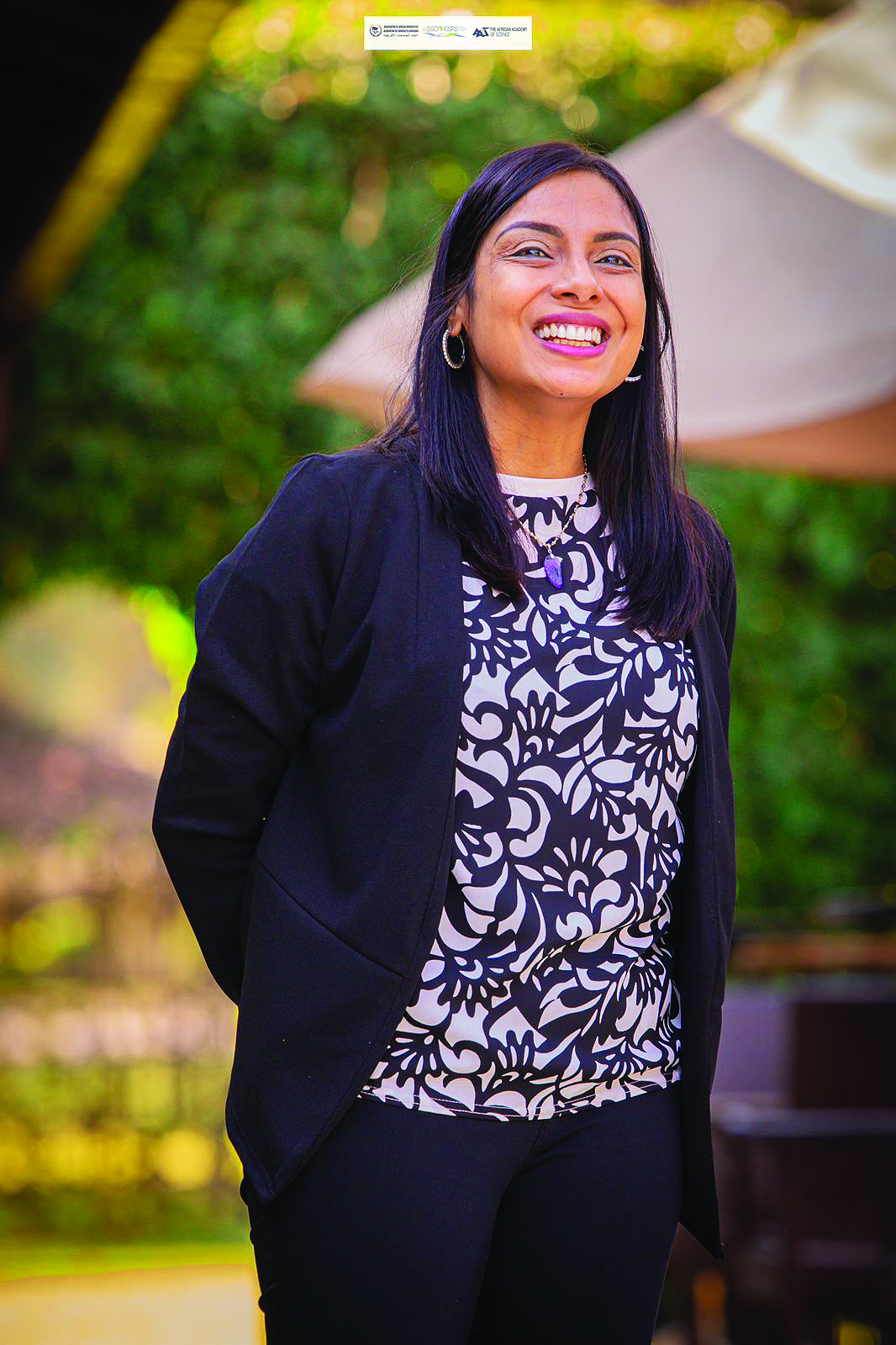By Edwin Naidu
Dr Rakeshnie Ramoutar-Prieschl, a former top achiever at Burnwood Secondary School in Clare Estate, Durban, is a Deputy Director-General in the Department of Science and Innovation.
She attended Burnwood from 1990 to 1996, earning the Good Fellowship award in matric, and completed her formative years at Sydenham Primary.
Ramoutar-Prieschl is currently on secondment to the DSI from the University of Pretoria, where she is Head of Department: Research Capacity Development, responsible for the portfolio that includes grants management, early career training and mentorship, and driving strategic partnerships in support of staff doctoral candidates.
She is also a research associate in the Faculty of Humanities and holds several grants, including from the National Research Foundation, the Department of Higher Education and Training, and the US Embassy.
The mother of two has been the architect and driver of the University of Pretoria’s annual Women in Science event, which celebrates the achievements and advancements made by women in the field. She has consistently championed opportunities, participated in dialogues about empowering women in science, and participated in countless webinars that have put South African and African sciences on the map.
Before joining the university, she led the research infrastructure portfolio for over 11 years at the National Research Foundation. During her tenure, Ramoutar-Prieschl advocated several policies, strategies and frameworks that have since provided the foundation for establishing, nurturing and sustaining various research platforms in the country.
Ramoutar-Prieschl also led Phase II of the Science Granting Council’s Initiative, where she authored three manuals on research and innovation excellence, research ethics and digital grants management systems, which advocates for the safeguarding of intellectual property and know-how whilst complying with best practices in the said research areas.
Over the course of her career, Ramoutar-Prieschl has lectured, tutored and mentored researchers and university staff at several African universities, spanning Botswana, Kenya, Ghana and Malawi. She has also supported capacity development needs at historically disadvantaged institutions in South Africa.
Ramoutar-Prieschl has also been part of the expert team identified by the African Academy of Sciences and the Association of Research Managers and Administration in the United Kingdom to lead research & innovation training in the International Research Management Development Programme across universities in Africa and the United Kingdom. In recognition of her work, she was awarded the 2022 SARIMA Excellence Award for making a distinguished contribution to the research management profession in Southern Africa.
Ramoutar-Prieschl has participated in the United Nations Science Technology and Innovation forum on a subject that is very close to her heart: Building Structural Equity and Inclusion in Open Science Practices and is a strong advocator for the equitable, fair and inclusive access to information wherein she coined the concept #UbuntuforOpenScience.
What was the name of your favourite teacher?
Mr Deena Pillay was my hero at Burnwood Secondary School, which I attended from 1990 to 1996.
How did Mr Pillay endear himself to you?
Certain individuals leave an indelible mark on the education journey, shaping our understanding and inspiring us to reach our potential. For me, that person was Mr Pillay. A man of remarkable dedication, he epitomised the perfect blend of strictness and kindness, transforming the landscape of mathematics for his students.
From the first day in his classroom, it was evident that Mr Pillay had high expectations. His rigorous approach demanded hard work and commitment but was never without purpose. He believed that every student had the potential to excel, urging us to push beyond our limits. His strictness was not a barrier; rather, it served as a pillar of support. With each challenge he presented, he taught us resilience and the value of perseverance.
What subjects did he teach you?
What truly set Mr Pillay apart was his passion for mathematics. He could uniquely break down complex concepts into manageable, engaging lessons. Through his innovative teaching methods, he made mathematics understandable and enjoyable. He would often relate mathematical concepts to real-life situations, allowing us to see the subject’s relevance and application beyond the classroom walls.
Has this influenced your choice of career?
Mr Pillay was more than just a teacher; he was a mentor who cared deeply for his students’ growth. He took the time to understand our struggles and celebrated our achievements, big and small. His encouragement instilled confidence in us, nurturing a love for learning that extended far beyond mathematics. His belief in us motivated many to pursue careers in science, technology, engineering, and mathematics.
Reflecting on my school years, I realise how fortunate I was to have Mr Pillay as a teacher. His influence shaped not only my understanding of mathematics but also my approach to challenges in life. He taught me that with dedication, hard work and a little guidance, I could solve even the most complex problems.
In honouring Mr Pillay, I recognise the profound impact one teacher can have on countless lives. His legacy inspires me to strive for excellence, practice kindness, and, like him, to believe in the potential of others. Mr Pillay is more than just my favorite teacher; he is my hero, a beacon of inspiration and a testament to the power of education.
Have you kept in touch with your favourite teacher?
I haven’t had any contact with Mr Pillay since leaving school, but I once saw him at Sparkport Pharmacy in Overport. I did not recognise him at first, as he had shaved off his beard. However, when we talked, I told him I had finished studying for my master’s and was in Cape Town at the time. He was so proud. He hugged me. I never met him again, but I would love to find him and have a chat or coffee with him.
INSIDE EDUCATION







